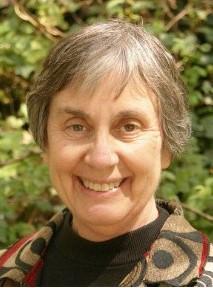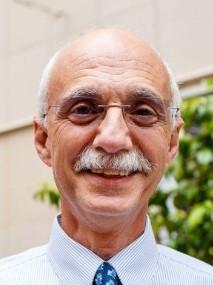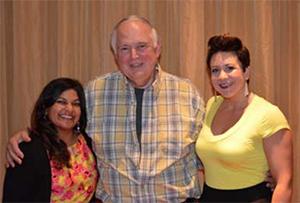
-
Understanding primary immunodeficiency (PI)

Understanding PI
The more you understand about primary immunodeficiency (PI), the better you can live with the disease or support others in your life with PI. Learn more about PI, including the various diagnoses and treatment options.
-
Living with PI
-
Addressing mental health
-
Explaining your diagnosis
- General care
- Get support
- For parents and guardians
-
Managing workplace issues
- Navigating insurance
-
Traveling safely

Living with PI
Living with primary immunodeficiency (PI) can be challenging, but you’re not alone—many people with PI lead full and active lives. With the right support and resources, you can, too.
-
Addressing mental health
-
Get involved

Get involved
Be a hero for those with PI. Change lives by promoting primary immunodeficiency (PI) awareness and taking action in your community through advocacy, donating, volunteering, or fundraising.
-
Advancing research and clinical care
-
Research Grant Program
-
Consulting immunologist
-
Diagnosing PI
-
Getting prior authorization
-
Clinician education
-
Survey research
-
Participating in clinical trials

Advancing research and clinical care
Whether you’re a clinician, researcher, or an individual with primary immunodeficiency (PI), IDF has resources to help you advance the field. Get details on surveys, grants, and clinical trials.
-
Research Grant Program
Update: Families of babies born with Artemis-deficient severe combined immunodeficiency (SCID) who don’t respond well to standard bone marrow transplant (BMT) treatment may consider pursuing a more effective treatment for their infants – gene therapy.
A recently published study by Dr. Morton Cowan, a renowned SCID specialist and immunologist at the University of California San Francisco (UCSF), and his research team shows that gene therapy restored the immune systems of babies who have Artemis-SCID.
Babies with SCID are born without a functioning immune system and are vulnerable to life-threatening infections. The condition is fatal unless treated within the first year or two of life.
Babies with Artemis-SCID have changes in the DCLRE1C gene, which codes for the Artemis protein, a DNA repair enzyme responsible for fixing DNA strand breaks during the re-arrangement of T and B cell receptors. Without functioning Artemis enzyme, these babies have no T and B cells, which are essential to the immune system function. The deficiency in the Artemis enzyme causes SCID.
The standard treatment for many types of SCID is BMT, which provides a healthy immune system through donor stem cells. But babies with Artemis-SCID who receive BMTs suffer from complications including higher rates of graft-versus-host disease (a condition in which the donor cells attack the recipient), greater rejection of the donated cells, and weaker recovery of their immune systems.
Babies with Artemis-SCID are also more vulnerable to side effects caused by the chemotherapy conditioning necessary to suppress the immune system and make room for the new donor cells in BMT.
Unlike BMT, gene therapy treatment provides the baby with a functioning immune system using the baby’s own corrected cells. Researchers remove stem cells from the baby, insert a working copy of the gene into the cells, and transplant the cells back into the baby.
In the UCSF study, babies newly diagnosed with Artemis-SCID received gene therapy treatment, preceded by low-dose chemotherapy.
Researchers detected T cells in all babies within one to four months after they received gene therapy. Five babies experienced full T cell immune reconstitution when they turned about one year old, and four babies produced sufficient levels of B cells to allow discontinuation of immunoglobulin (Ig) replacement therapy. Of the four that stopped Ig replacement therapy, three displayed normal responses to immunizations, and the fourth is healthy enough to start immunizations, according to the published study.
Four babies developed a condition in which the body attacks its own red blood cells, called autoimmune hemolytic anemia, about 4 to 11 months after the transplant, but the condition resolved after T cell reconstitution. Also, one baby who had cytomegalovirus (CMV) required a second infusion of gene-corrected cells to assist in building T cell reconstitution strong enough to clear the virus.
All the infants who received the clinical trial gene therapy developed functional T and B cells, offering new hope to families coping with this rare, life-threatening condition.
______________________________________________________________________________________________________________________________________
Originally published March 1, 2022
Encouraged by progress made in a gene therapy clinical trial for severe combined immunodeficiency (SCID), the Food and Drug Administration (FDA) awarded research performed at the University of California San Francisco (UCSF) a Regenerative Medicine Advanced Therapy (RMAT) designation.
The RMAT designation means the FDA will help guide the development of a pivotal gene therapy clinical trial leading toward approval and FDA registration as a standard of care for Artemis-SCID. The Artemis-SCID gene therapy clinical trial is headed up by UCSF pediatric professors and researchers Dr. Mort Cowan and Dr. Jennifer Puck.

“This designation invites us to meet with the experts in rare disease at the FDA to help streamline the process of getting to the next steps of a pivotal trial and eventual full acceptance. It’s a leg up, an extra helping hand from the FDA,” said Puck.
“The FDA recognizes that it’s a tough haul for rare diseases that often aren’t working with a lot of funding, and of course, we never have enough patients to do placebo control trials or big trials with statistical significance that many drug trials routinely conduct for more common disorders. So, they want to work with us in our particular situation to understand how we can get approval in the most rapid and still valid way possible.”
Artemis-SCID is diagnosed in fewer than five children each year and is most prevalent in Navajo and Apache Native American communities. The standard treatment for Artemis-SCID, which affects the DCLRE1C gene, is a bone marrow transplant (BMT) from a healthy donor but several factors hinder the effectiveness of that treatment.
Children born with Artemis-SCID not only have absent T cells and B cells, but they are more likely to reject a standard BMT and also have a defect in the ability to repair DNA, making them more sensitive to high-dose chemotherapy used in BMT. They are also more likely to develop graft-versus-host disease in which the donor cells attack the recipient’s tissue.
“This reaction can be quite severe and is one of the major complications of allogeneic transplant (BMT from a healthy donor) and it’s worse in these patients with Artemis-SCID than in other genetic forms of SCID,” explained Cowan.
That’s why the researchers turned to gene therapy to treat Artemis-SCID. Gene therapy transfers a normal copy of the mutated gene into the patient’s own blood-forming stem cells, avoiding the need for donor cells so that graft-versus-host disease and graft rejection are no longer issues.
The UCSF researchers started the Artemis-SCID gene therapy trial in May 2018. The trial features two groups of patients – one group of newly-diagnosed babies receiving gene therapy as their first treatment for SCID and another group of older children and young adults who originally had standard allogeneic BMTs but failed to achieve immune function. The 10 newly-diagnosed babies who received gene therapy are healthy, said Dr. Cowan.

“The younger patients have done extraordinarily well, and that’s the group we currently are most focused on. Several are living normal lives and not restricted in any way, except I suppose from COVID precautions that apply to all children. They are getting their vaccines, and starting preschool when they are old enough,” he said.
Even though the UCSF Artemis-SCID gene therapy clinical trial has received the RMAT designation, completion for the pivotal trial will still take up to five years because of the small number of children born each year with Artemis-SCID.
“One of the things the meeting with the FDA will help us to establish is exactly how many patients we have to treat in a pivotal trial, in addition to the 10 that we have already treated,” said Cowan.
“Another problem, of course, is that the FDA expects you to have a control population. When you’re dealing with a disease that’s more common, like cancer, you can do a study where you treat one group with an experimental treatment and another group with a standard treatment. You can have 50 or 100 in each group, which means you can do standard statistics and so forth.
“With very rare diseases like Artemis-SCID, you can’t do that. Only two to three patients may be born in the U.S. with Artemis-SCID every year. They all need treatment right away but a randomized study would take forever. The FDA understands that, and we have to come up with modified ways of running the study while still assuring them that this treatment is safe and is better than what exists.”
The UCSF Artemis-SCID gene therapy clinical trial is funded by a $12 million grant from the California Institute for Regenerative Medicine (CIRM). Of the hundreds of projects that have been funded by CIRM, only about eight have earned the RMAT designation.
“It’s not that common, particularly since the FDA gave us the designation without any questions at the time of submission. I feel very excited about it,” said Dr. Cowan.
Learn more about the UCSF Artemis-SCID gene therapy clinical trials.
Related resources
Sign up for updates from IDF
Receive news and helpful resources to your cell phone or inbox. You can change or cancel your subscription at any time.





The Immune Deficiency Foundation improves the diagnosis, treatment, and quality of life for every person affected by primary immunodeficiency.
We foster a community that is connected, engaged, and empowered through advocacy, education, and research.
Combined Charity Campaign | CFC# 66309




